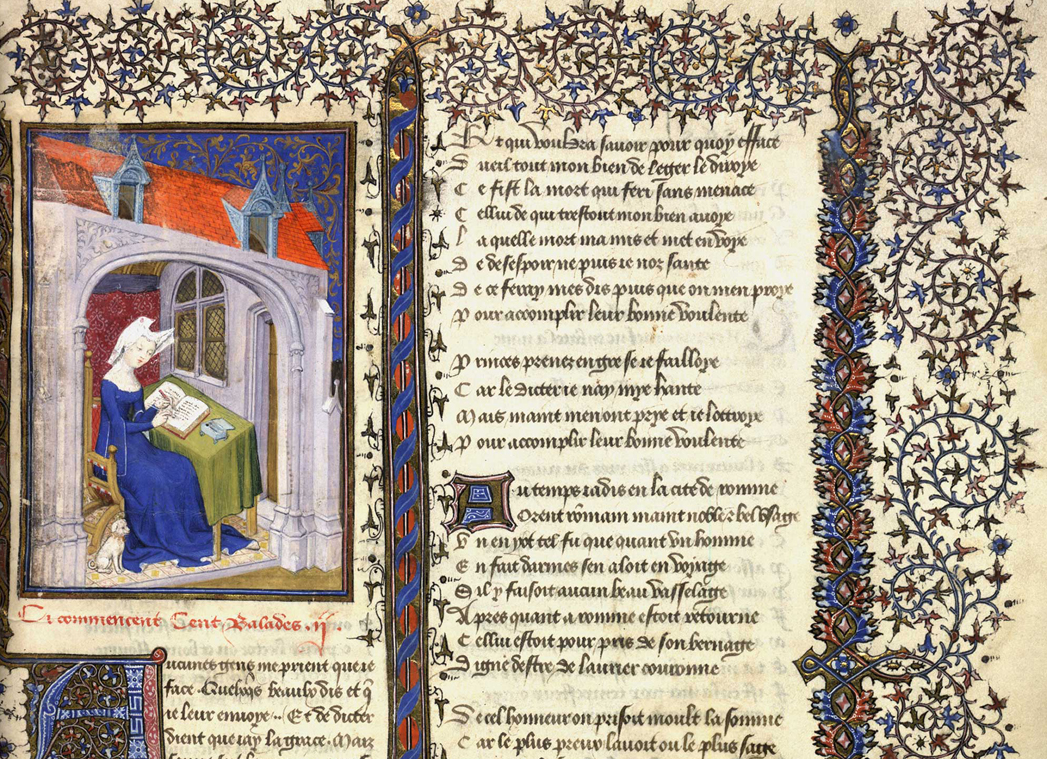The aim of this conference is to consider how intellectual problems were approached – if not necessarily resolved – through the kinds of hypothetical enquiry found in poetry and other kinds of fictive texts.
CfP: Medieval Thought Experiments: Poetry and Speculation in Europe, 1100-1450
New College, Oxford, 13.04.2015 – 14.04.2015
Keynote speakers: Prof. Vincent Gillespie (Oxford), Prof. John Marenbon (Cambridge)
In the high and late Middle Ages, fictional frameworks could be used as imaginative spaces in which to test or play with ideas without necessarily asserting their truth. The aim of this conference is to consider how intellectual problems were approached – if not necessarily resolved – through the kinds of hypothetical enquiry found in poetry and other kinds of fictive texts. We hope to encourage an exploration of the relationship between poetry and speculation and the medieval understanding of speculatio, and we use the anachronistic term ‘thought experiment’ to provoke particular debate around two related questions:
(i) to what extent can hypothetical and speculative texts be understood as ‘experiments’, as frames within which ideas can be tested rather than necessarily asserted?
(ii) how far can speculation be understood not merely as an intellective process, but also as something affective and sensitive? In this respect we draw on both meanings of the medieval Latin experientia: not just ‘experiment’, but also ‘experience’.
We welcome papers that consider why a writer might choose a fictional or hypothetical frame to discuss theoretical questions, how a text’s truth content is affected and shaped by its fictive nature, or what kind of affective or intellectual work is required to read a speculative text. We hope that this conference will explore what happens to theoretical truth-claims in a wide range of hypothetical texts – allegorical dream-visions (such as the Romance of the Rose or Piers Plowman) as much as philosophical dialogues (such as those of Peter Abelard and Ramon Llull).
This conference aims to bring together scholars working across the spectrum of medieval languages and academic disciplines, including (but not limited to) literary studies, intellectual history, philosophy, and theology.
Papers may wish to consider some of the following questions:
- Kinds of Meaning. How do fictional frames generate meaning, and how is this influenced by genre, mode, or context?
- Space. What rules govern the imagined spaces of medieval thought experiments, and what issues do spaces raise?
- Truth and lies. How are philosophical fictions used, abused, or condemned? When is it acceptable to lie in order to arrive at truth?
- Imagination and intellect. What kinds of knowledge are accessible via different mental faculties?
- Speculatio, speculum. specula How is the act of speculation represented or described in medieval texts, and how does this relate to the senses, in particular to sight?
Please submit abstracts for papers of up to 20 minutes in length to medievalthoughtexperiments+proposals@gmail.com by 10 November 2014.
The registration fee for this conference will be £60, with an optional dinner in New College on the Monday evening at an additional cost (to be confirmed).
Please note that there will be a small number of travel bursaries available for graduate students and early career researchers giving papers at the conference (up to a value of £200). When you submit your abstract, please state if you would like to be considered for a travel bursary.
Enquiries can be directed to the organizers at medievalthoughtexperiments+enquiries@gmail.com.
